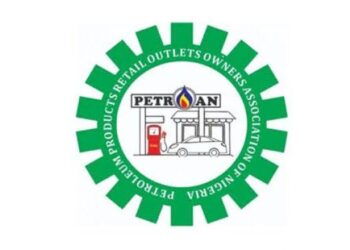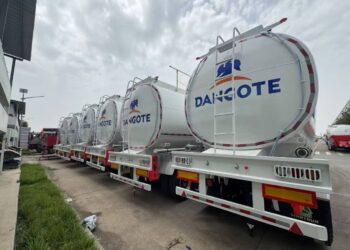The issue of soot pollution has emerged as a significant concern in Port Harcourt, Rivers State, and throughout the Niger Delta region.
While this environmental crisis has long been a pressing problem, it appears to have been overshadowed by ongoing political turmoil.
However, the dangers posed to both public health and the local economy continue to escalate, demanding urgent attention.
In recent times, the alarming rise in the price of fuel, specifically premium motor spirit (PMS), has driven many young people back to the creeks to engage in artisanal oil refining, commonly known as the “kpo-fire” business.
This practice involves the illegal production of alternative fuels and diesel, a response to the economic pressures caused by soaring fuel costs.

Over five years ago, the Rivers State government responded to public outcry regarding the pervasive black dust and hazy atmosphere by establishing a technical committee to investigate the soot crisis.
Despite ongoing demands from various groups for the committee’s findings to be made public, political crises soon erupted, further complicating the issue.
The commissioner in charge of the soot investigation was unexpectedly relieved of their duties during a press conference, raising concerns about the seriousness of the government’s commitment to addressing this environmental threat.
Several non-governmental organizations (NGOs), including the Youths and Environmental Advocacy Centre – Nigeria (YEAC-Nigeria), have conducted extensive research and monitoring on the soot crisis, hoping their findings will be taken seriously by both the federal and state governments in the oil-rich region, particularly in Rivers State.
Medical experts at the University of Port Harcourt Teaching Hospital (UPTH), recognized as a leading medical center, have also been investigating the health implications of soot pollution.
Hamilton Opurum, a lecturer in the Department of Medical Biochemistry, along with his colleagues, has highlighted significant health concerns associated with soot exposure.
Research conducted by Opurum and others, including studies by Onwuna et al. and Ekhator et al. between 2023 and 2024, revealed alarming statistics: a staggering 67.3% of residents reported experiencing respiratory issues, such as coughing, sneezing, and difficulty breathing, with many individuals suffering from indoor discomfort due to soot.
“A systematic review highlights a link between soot emissions and rising air-related illnesses, including chronic bronchitis and pneumonia, especially since 2016.
These findings underscore the growing health crisis in the Niger Delta, driven by poor air quality resulting from industrial pollution and artisanal oil refining,” Opurum noted.

The visible accumulation of soot has contaminated homes and public spaces, severely deteriorating air quality. Port Harcourt has now earned a reputation as one of the most polluted cities in the world.
Citing research by Agaviezor & Nubere from 2023, Opurum emphasized that this pollution has also compromised access to safe drinking water, affecting 76-80% of rural communities.
“The widespread presence of soot not only poses severe health risks but also threatens essential resources, worsening the environmental crisis and living conditions for Niger Delta residents,” he added.
The socio-economic ramifications of this soot crisis are profound. Illegal oil refining, or kpo-fire, contributes not only to soot emissions but also to the contamination of agricultural lands and waterways, leading to food insecurity, as discussed in the study “Environmental Effect of KPO-Fire in Niger Delta and Future Health Implication” (2022).
The immediate health risks are compounded by the disruption of local economies and the degradation of the environment. Growing awareness of these issues has sparked urgent calls for collective action to tackle the crisis at its roots.
It is imperative to address the underlying causes of soot emissions to ensure the long-term sustainability and well-being of communities in the Niger Delta.
Extensive research by experts such as Opurum and Fyneface Dumnamene Fyneface, the executive director of YEAC-Nigeria, has drawn direct connections between soot exposure and health crises.
These studies highlight a range of health concerns linked to soot, including;
- Respiratory problems: There has been a noticeable increase in asthma, bronchitis, and chronic obstructive pulmonary disease (COPD), particularly affecting children.
- Cardiovascular diseases: The rise in particulate matter from soot has led to heart attacks, hypertension, and strokes as these particles enter the bloodstream, causing inflammation.
- Cancer: The presence of carcinogenic substances in soot has been linked to various forms of cancer.
- Premature deaths: The World Health Organization (WHO) estimates that air pollution, including soot, contributes to millions of premature deaths globally each year.
Vulnerable populations, particularly children, the elderly, and pregnant women, face heightened risks from soot pollution.
Furthermore, the environmental degradation caused by soot exacerbates existing issues in the Niger Delta, contributing to ecological disturbances that impact air, land, and water quality.
Key environmental concerns include:
- Air quality degradation: The pervasive presence of soot has led to significant declines in air quality across the region.
- Water contamination: The pollution of water sources has far-reaching implications for public health and access to clean drinking water.
- Soil degradation: Agricultural productivity is adversely affected due to contaminated lands, leading to reduced crop yields and diminished food security.
- Biodiversity loss: The negative impacts on local ecosystems threaten various species and their habitats.
- Climate change: Black carbon, a primary component of soot, absorbs sunlight, contributing to atmospheric warming and altering weather patterns.
Studies indicate that the ongoing soot pollution crisis has not only resulted in public health emergencies but has also intensified the socio-economic difficulties faced by communities.
Healthcare facilities are burdened by the rising demand for treatment of respiratory and cardiovascular conditions linked to soot exposure.
Additionally, farmers and fishermen experience a decline in productivity due to environmental degradation. “Agricultural yields are lower, and fish stocks are declining due to water contamination,” experts note.
The phenomenon of migration and displacement has also emerged as a consequence of this crisis.
Reports indicate that some residents have been forced to leave their homes in search of better living conditions due to the intolerable air quality, leading to internal displacement and overcrowding in nearby urban areas.
Schools in affected regions have reported increased absenteeism due to health issues, adversely impacting students’ academic performance and future opportunities.
Moreover, the decline in tourism and investment due to environmental degradation further exacerbates the economic challenges faced by the region, stifling local economies that rely on these sectors.
Causes of Soot Pollution;
Researchers have identified several key contributors to soot pollution in the Niger Delta, including:
- Illegal oil refining (kpo-fire): This artisanal refining process has been recognized as a major environmental and socio-economic challenge. Locals engage in crude oil theft and refine it in makeshift facilities, leading to significant environmental harm, including oil spills, deforestation, and air pollution from black soot.
- Gas flaring: Common among oil companies in the region, gas flaring involves burning excess natural gas during oil extraction, contributing to severe environmental and health issues.
This practice releases carbon dioxide (CO₂), methane (CH₄), and toxic pollutants such as benzene, accelerating climate change and contributing to respiratory diseases in local communities.
- Industrial emissions: Heavily industrialized regions like the Niger Delta suffer from emissions related to oil refining, manufacturing, and gas flaring, which introduce pollutants such as sulfur dioxide (SO₂), nitrogen oxides (NOx), particulate matter, and volatile organic compounds (VOCs) into the air, water, and soil.
- Incomplete combustion: This often-overlooked cause occurs in generators and vehicles common in the Niger Delta, resulting in harmful pollutants such as carbon monoxide (CO), nitrogen oxides (NOx), particulate matter (PM), and volatile organic compounds (VOCs). Inefficient fuel burning contributes to air pollution and is linked to respiratory illnesses and cardiovascular diseases.
- Bush burning and deforestation: These prevalent practices lead to severe environmental degradation, with bush burning used to clear land for agriculture releasing large amounts of CO₂ and contributing to air pollution and global warming.
Deforestation driven by logging, farming, and urbanization further exacerbates these impacts by diminishing forest cover crucial for carbon sequestration.
Government and Policy Responses;
Efforts to combat the soot crisis have been sporadic and insufficient, hampered by a lack of political will, regulatory enforcement, and public awareness.
A former environment commissioner in Rivers State remarked on the pervasive impact of soot, stating, “There is no doubt that soot is still an issue in our environment where several researches have shown that it is responsible in no small measure for the lower life expectancy seen in our region compared to others”(.
Besides, there is a higher incidence of skin diseases and some cancers in our environment directly related to the effects of soot. Unfortunately, our politics takes a pre-eminent position in our scheme of things.”
Despite some actions taken by the government, such as enacting various environmental laws, enforcement has been lax.
Agencies like the National Environmental Standards and Regulations Enforcement Agency (NESREA) are responsible for monitoring and reducing emissions, yet illegal refineries continue to operate with little oversight.
Clean-up initiatives, including the Hydrocarbon Pollution Remediation Project (HYPREP), have seen slow progress due to bureaucratic challenges and inadequate funding.
Reports indicate that while funding has been available, the process for accessing these funds is fraught with bottlenecks.
Public awareness campaigns about the dangers of soot pollution, initiated by NGOs and local communities, remain underfunded and often lack the necessary outreach.
Researchers advocate for strengthened regulatory measures as a remedy.
They call for phasing out artisanal refineries, implementing cleaner technologies for oil operations, enhancing healthcare facilities, restoring the environment, and launching awareness campaigns to combat soot pollution.
YEAC’s Vision for Addressing Soot;
In an exclusive interview, YEAC’s executive director, Fyneface Dumnamene Fyneface, discussed the implications of acid rain in the Niger Delta. “Soot, which are particles from incomplete combustion, especially from petroleum products, is still with us

































